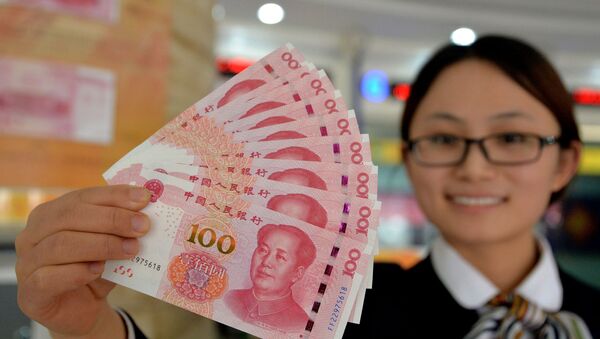People’s Bank of China Deputy (PBOC) Governor Pan Gongsheng has suggested that the Chinese yuan may expand its global clout due to current trade rows.
“Amid frequent trade frictions and rising populism, some countries and regions are emphasising the use of local currency in cross-border settlements, bringing about new opportunities for the yuan’s globalisation”, Pan noted in an article published by the magazine China Finance.
He pledged that the PBOC will try to do more to strengthen international investors’ confidence in the yuan and increasingly promote the Chinese currency’s global use despite the fact that this will be “mostly a market-driven effort”.
The remarks followed Russian Finance Minister Anton Siluanov and Chinese People's Bank Governor Yi Gang reportedly signing a bilateral deal in early June to shift to national currencies in mutual payments.
Citing a letter from the Russian Finance Ministry, the newspaper Izvestiya reported that one of the options could be creating "gateways" between the Russian and Chinese analogues of the SWIFT payment system.
Statistics released by SWIFT indicated that less than 2 percent of global transactions are currently implemented in the yuan. The 2.79-percent peak of such transactions fell on August 2015, when the International Monetary Fund agreed to include the yuan in its reserve currency basket.
Pan’s comments come amid the ongoing US-Chinese trade row which escalated in May when Washington imposed a 25 percent tariff on another $200 billion worth of Chinese goods. Beijing, in turn, pledged to retaliate by hiking tariffs on $60 billion worth of US imports in June.
The two countries have been embroiled in a trade spat since June 2018, when US President Donald Trump slapped 25 percent tariffs on Chinese goods worth $50 billion in a bid to fix the countries' bilateral trade deficit.
Since then, the two sides have exchanged several rounds of tariffs, with signs of the conflict being resolved coming during Trump’s meeting with Chinese counterpart Xi Jinping on the sidelines of the G20 summit in Osaka in June. At the time, Trump announced that he had agreed not to impose new tariffs on Chinese products.

